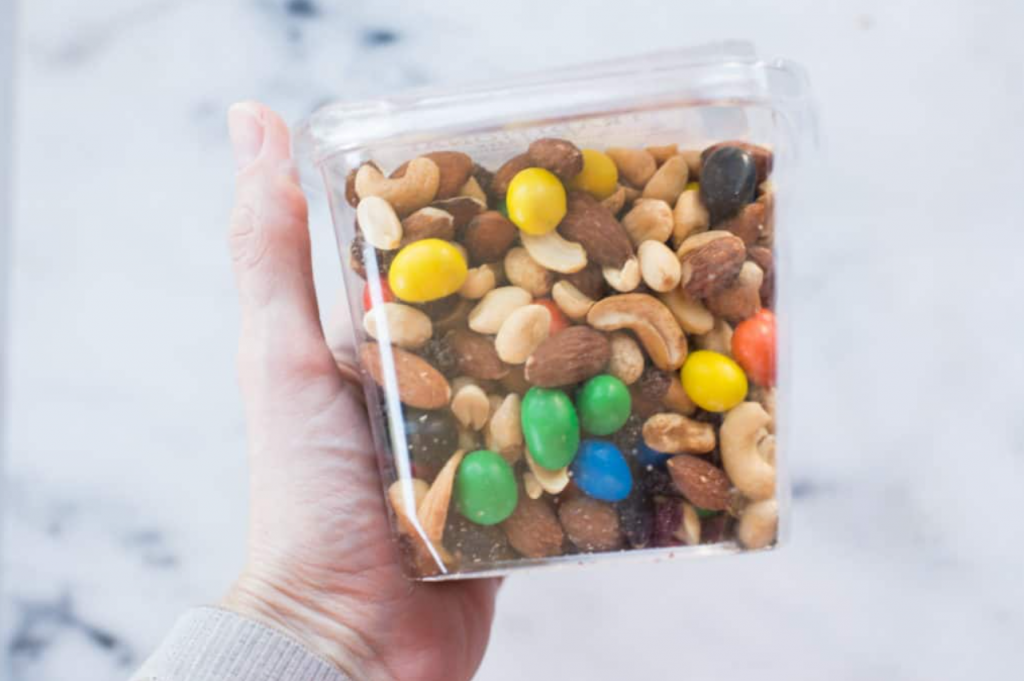
Food
10 Popular “Healthy” Foods That Can Be Harmful to Your Health
In today’s era, the emphasis on consuming nutritious food is paramount. With an abundance of options for nutrient-dense meals available, it is crucial to recognize that not every food labeled as “healthy” truly meets the criteria.

It is disheartening to discover that some of the most widely acclaimed healthy foods can actually be detrimental to your well-being. Clever marketing tactics have misled the public into believing that these foods are beneficial. However, the time has come to shatter these illusions. Prepare yourself for shocking revelations that may prompt a thorough reassessment of your pantry contents!
YOGURT FLAVORED RAISINS
Kicking off our list is the seemingly innocent raisin. So often perceived as a healthy solution to satiate your sweet tooth, it’s important to note that not all raisins are created equal. Specifically, those enticing yogurt-flavored raisins marketed toward children are surprisingly detrimental to one’s health.

Although undeniably tasty, yogurt-flavored raisins are essentially sugar-coated treats with little nutritional value beyond their sugary allure. Instead, consider a healthier alternative. Take regular raisins, mix them with Greek yogurt, and freeze them. This simple adaptation creates a perfectly wholesome and satisfying snack option for both you and your children.
VEGGIE CHIPS
It’s no secret that vegetables are an excellent addition to a healthy diet. Consequently, vegetable chips may appear to be the ideal solution for satisfying your nutrient craving while indulging in your favorite snacks.

Or at least, the reality of Veggie Sticks falls far short of their name. Contrary to expectations, these snacks lack the essential fiber and nutritional goodness typically associated with vegetables. Instead, brace yourself for excessive sodium content, as well as copious amounts of starch and oil.
MUFFINS
Consistently occupying a prominent spot in the health-conscious grocery aisle, muffins often bear labels like “whole wheat,” “reduced-fat,” or “gluten-free.” While these claims may hold true, it is important to recognize that they do not automatically equate to being beneficial for your well-being.

The primary concern lies in the significant amount of sugar present in these muffins. Despite claims of being “reduced-fat” or “whole wheat,” the excessive sugar content overshadows any potential benefits. In fact, it is a common occurrence to find muffins packed with alarming amounts of sugar—rendering the “healthy” labels virtually meaningless. Additionally, the gluten-free aspect of these muffins holds significance only for individuals with a genuine allergy, having little impact on the general population.
TRAIL MIX
The very name “trail mix” implies that this snack is tailored to cater to health-conscious and physically active individuals. However, while the classic trail mix comprising basic nuts and raisins does offer nutritional benefits, not all variations hold the same level of healthiness.

Regrettably, the majority of store-bought trail mixes fall short of their purported healthfulness. These versions often conceal high amounts of added sugars, while even the nuts and fruits included are coated with artificial colors, preservatives, and chemicals. In light of this, the optimal choice is to prepare trail mix at home using unsalted nuts and dried fruits, ensuring a healthier and more wholesome snack option.
FRUIT SMOOTHIES
Over the past few years, fruit smoothies have gained immense popularity among health enthusiasts worldwide. These delectable beverages promise to provide a plethora of beneficial nutrients to their consumers. However, a closer examination of the label unveils a different reality altogether.

These seemingly healthy fruit mixes are often infused with alarmingly high sugar levels, exceeding 50 grams per serving. Therefore, it is crucial to reconsider your perception of fruit smoothies as a “wise” choice before indulging in them without hesitation.
DRIED FRUIT
You may be pondering how we can incorporate fruit into our roster of snacks. Here’s the key: While the notion of dried food as a wholesome snack holds true, it is important to distinguish between those dried fruits prepared in the traditional manner, without the inclusion of sugar and additives.

Unfortunately, your preferred grocery store options for dried fruits rarely align with the ideal. Nearly all commercially available dried fruits are laden with preservatives and contain over 40 grams of sugar per serving. In light of this, a superior alternative would be to opt for the simplicity of consuming a fresh apple instead.
FAT-FREE COOKIES & SNACKS
There was a period when fat became the global arch-nemesis, prompting brands to produce a wide range of fat-free food options. However, a cunning addition lurked amidst the promise of these seemingly healthier alternatives, concealing something far more detrimental.

The secret behind the irresistible taste of fat-free snacks lies in a sinister truth—they are laden with added sugar. Surprisingly, despite their perceived health benefits, fat-free cookies contain approximately 13 grams more sugar than their regular counterparts with fat. This revelation unveils the unsettling reality that fat-free options can actually be worse for your well-being due to their excessive sugar content.
APPLESAUCE
Apple sauce has long been regarded as a nutritious snack, particularly for children. However, it is essential to recognize that the traditional, homemade version differs significantly from the varieties commonly found in local grocery stores.

Numerous packaged apple sauce brands contain alarming amounts of added sugars, such as high fructose corn syrup, as well as various chemicals to prolong shelf life. If you have a genuine fondness for apple sauce, it is crucial to seek out options that are free from any added sugars. You can enjoy a healthier version of this beloved snack by doing so.
ENERGY BARS
During their initial introduction, energy bars were positioned as a convenient fuel source for individuals leading active lifestyles. However, a brief examination of the ingredient list exposes the means by which these bars claim to provide that much-needed “energy.”

Indeed, the primary ingredient that fuels most energy bars is sugar. Disguised under various names such as processed brown rice syrup or cane syrup, these bars are ultimately composed of an excessive amount of sugar and carbohydrates, making them far from a wholesome choice.
PEANUT BUTTER
Peanut butter and other nut spreads have long been recognized as valuable pantry staples. However, numerous companies take advantage of this knowledge by marketing poor-quality peanut butter that lacks the nutritional benefits one would expect.

It’s important to recognize that not all nut butter brands are created equal. Many well-known and widely loved brands contain ingredients like palm oil, sugar, or molasses, which may diminish their nutritional value. Instead, we suggest opting for a local brand that prioritizes the production of pure peanut butter without any added sugar. While the taste might differ slightly, choosing such a product ensures you reap all the desired benefits without compromising on your health.




0 comments